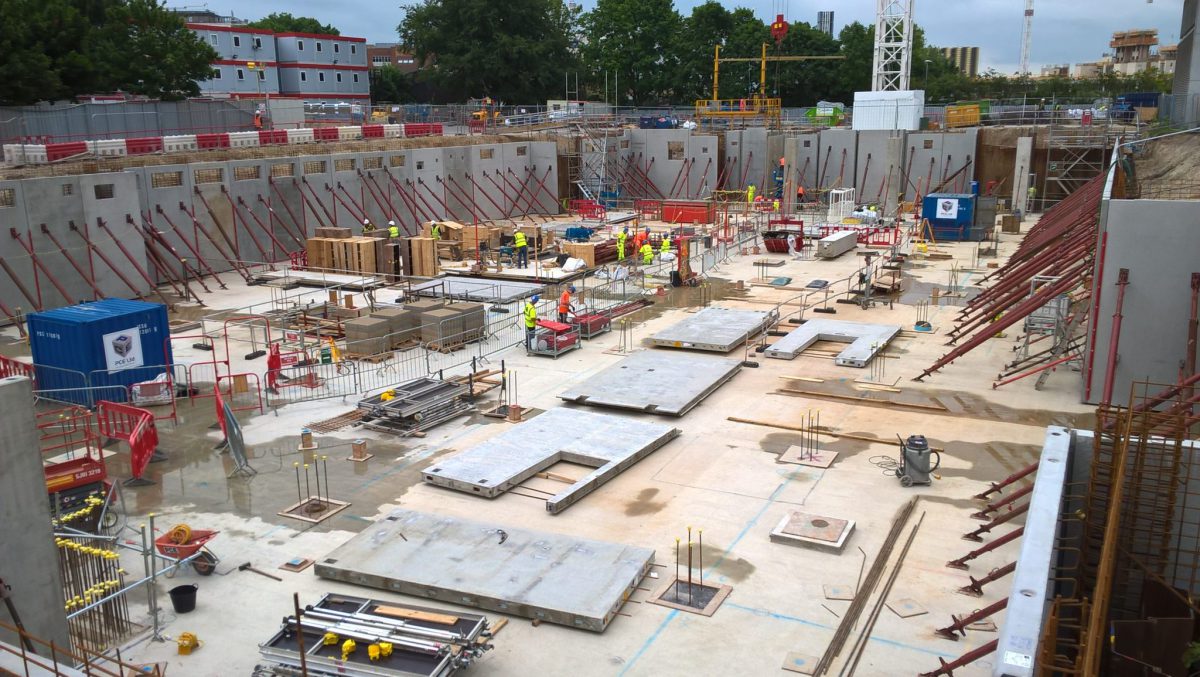Project Capella is a £79m research laboratory under construction by Kier for the University of Cambridge. It is located within the Cambridge Biomedical Campus, where £1bn of buildings are being constructed concurrently. Due to the overheated local market, creative thinking was required to ensure construction could be undertaken at the fast-track pace required by our client.
The volume of work concentrated in a small area required collaboration from the client down. Working as one team the entire supply chain used fast-track construction solutions to address significant logistical and construction management challenges of the site. To limit on-site labour and mitigate local resource and material availability, we aspired to maximise offsite construction. This called for a high level of supply chain integration at a much earlier stage. Through early engagement we were able to facilitate innovation in design to prefabricate as much of the superstructure as practically possible and de-risk the project.
As a research laboratory, the building has stringent vibration criteria, far in excess of typical requirements. This is usually achieved via an insitu-poured concrete frame. However, local concrete demand was identified as a risk. Early collaboration with our supply chain allowed us to develop a precast concrete/hybrid frame that could meet the challenging vibration requirements. Decisions needed to be made much earlier than usual, for example, what laboratory machinery would be used and where, so that designs were advanced enough that they could be manufactured offsite (long lead-in times) with confidence that the precast design would fully meet requirements.


